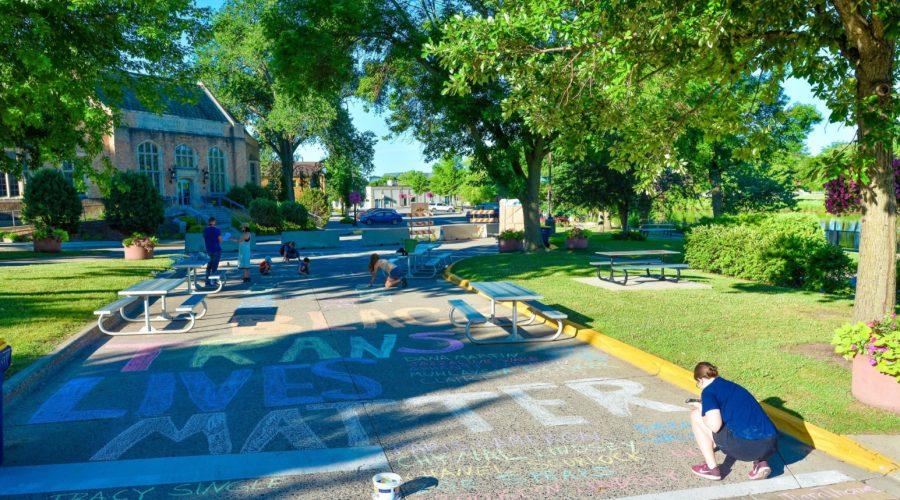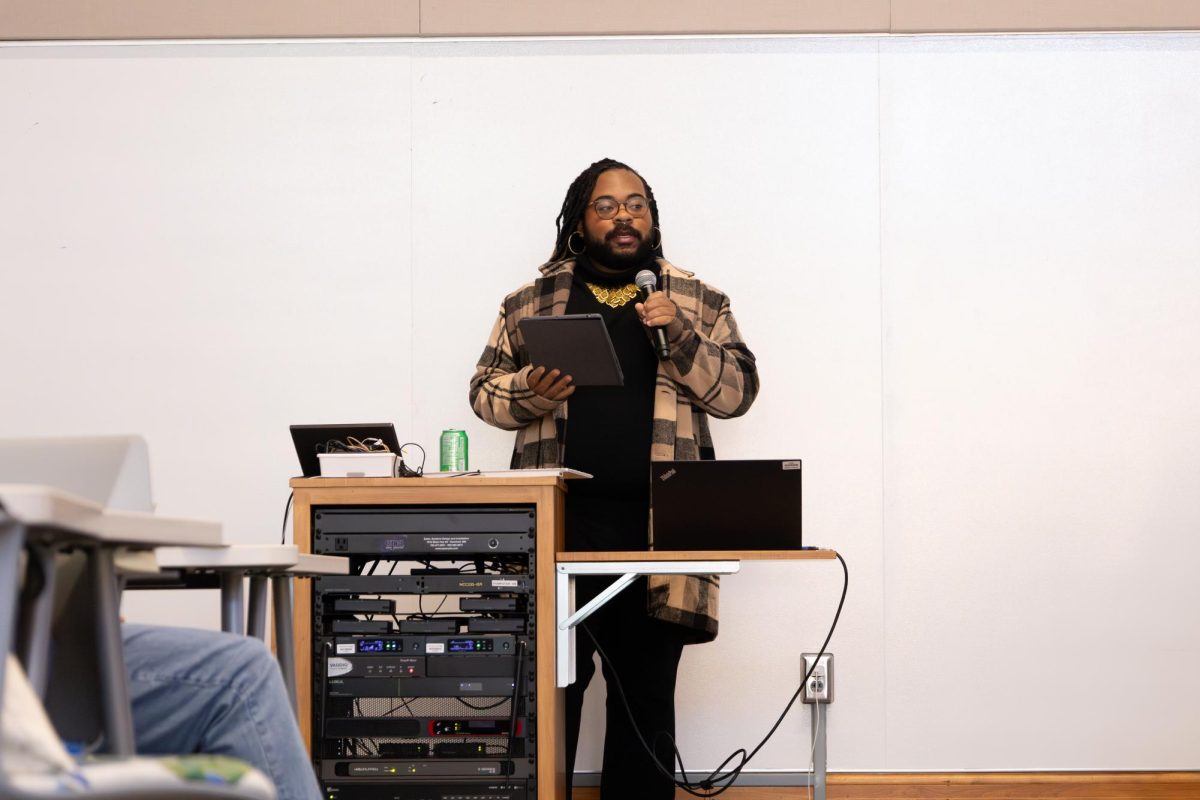As an experimental documentary filmmaker and Cinema and Media Studies professor at Carleton, Cecilia Cornejo is no stranger to making noise. In fact, her film of the same name played a key role in getting the Northfield youth a skate park. Now, she has moved on to a new project calling attention to Northfield’s ambivalent response to the Black Lives Matter movement.
Born and brought up in Chile, she was upset about not being able to go to the protests in that country last year. “It’s always something,” she said. “I was dealing with citizenship paperwork at the time and so not being able to go to Chile was a blow.” When the BLM protests started in the Twin Cities, however, she knew she had to do something.
Cornejo described how people sometimes make many excuses for their lack of involvement in the protests. “Sometimes it’s ‘oh but you don’t live in the cities’, or ‘oh your health is not great’—there’s always something.” She also started donating to BLM-supporting organizations and fundraisers. “My daughter even went to protest on my behalf for my birthday but it just wasn’t enough.”
Fed up with the excuses, she decided to do what she loves—make noise. “I didn’t want to be in your face, but I knew I had to do something to attract attention at how unbothered and untethered people in Northfield are to what’s happening around us. I wanted to interrupt that pristine image.”
She started sending out emails and posting on social media to reach out to Northfield residents. “I would just say, ‘Is someone else also aggravated by Northfield’s response to the protests? If so, would you be willing to do something about it?’ and there was so much demand.”
Having gauged the public’s interest, she started working toward a way to really attract the focus of the community. Her mind went to colored chalk. “I wanted it to be an ephemeral action. Something to emphasize how things enter our vision and then pass away. Something fleeting that catches your eye and then is erased by time or people or passage.”

Having done her research, she knew chalking to be legal in Northfield, as long as it is washable. The decision to use chalk was accompanied by a plan to write the names of unarmed Black people killed by the police. Armed with determination and passion, her initial group of twelve marched on to Bridge Square with a list of unarmed Black victims of police brutality.
“It was chaos that first day. We were just so confused on how to start so we just yelled out a ‘welcome’ and then everyone just took a little spot and started writing the names.” The colorful, even playful, writings were juxtaposed with the grim reminder of the experience of racism that is intertwined with the fabric of being a person of color in America.
“It was almost beautiful. We knew what and why were doing this but we needed to refine the how.” To relinquish the chaos, Cornejo shifted the methodology of the project. By the second meeting, the gatherings were honored by a welcome, followed by a land acknowledgement.
“I always knew just the names weren’t enough, we needed to know these names, so I read George Floyd’s biography. His memory couldn’t be just of a victim but we needed to know his life other than that,” Cornejo said. Her quest to celebrate Floyd’s life more than his death led to an epiphany; more than a mourning, these gatherings could not just be a celebration of death, they had to be a celebration of life.
This led the project to evolve. For subsequent gatherings, Cornejo said, “We started with a welcome, followed by a land acknowledgement and then we read two biographies—the first one about a victim of police brutality and another one about a Black leader or artist.” From James Baldwin to Toni Morrison, these biographies reflected resilience.
“Once we made these additions, the project became a living, dynamic, breathing sentiment.” Just names became designs and drawings that were able to take forms that were meaningful to the volunteers,” noted Cornejo.
COVID-19 of course posed a very real problem for these gatherings, so the volunteers divided the tasks. People unable to attend the gatherings contributed by doing research for the names and the biographies. “These two ladies couldn’t come to the gatherings so they undertook the research, and Carleton students started volunteering to edit the videos that we shot.”
Since documentation is an important part of Cornejo’s work and life, she meticulously captured the gatherings and the process. This documentation, in fact, led another group in Seattle to start a similar initiative. “These people so far away were able to take something away from what we were doing, and I think that was important to our project here.”
The project took place every week for sixteen weeks following Floyd’s death. “We named it ‘Say Their Names Northfield’ and now we’re moving to once a month. I think we’re all burned out.” Despite the burnout, Cornejo continues to think of ways to advance the initiative even when winter hits, as this is certainly not the end. “We will continue, but now we need to think of ways other than chalk.”
Cornejo continues to attend meetings with the Northfield City Council to push for policy changes. One woman writing names of Black victims in chalk on the pavement outside her house transformed into a town-wide movement. A call to action that was meant to rattle the perfect image of this Midwestern college town has become an inspiration for people to realize ignorance stems from privilege and results in injustice.











